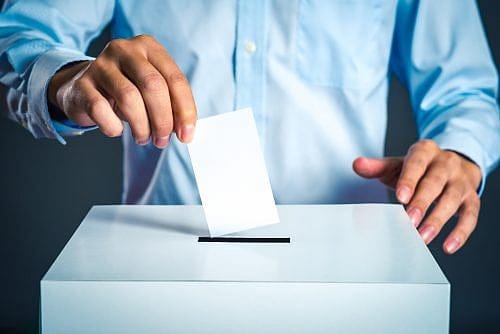Effort To Repeal Ranked Choice Voting In Maine Falls Short of Signature Requirement To Make Ballot

Maine Republicans want to repeal ranked choice voting, but their effort this year appears to have failed.
The party gathered more than 72,000 signatures for a ballot initiative that would ask voters in November to get rid of ranked choice voting for the presidential general election, but the Maine Secretary of State declared around 11,000 of those signatures invalid. That left Republicans with about 61,000 certified signatures, about 2,000 short of what they would have needed to get the measure on the ballot.

